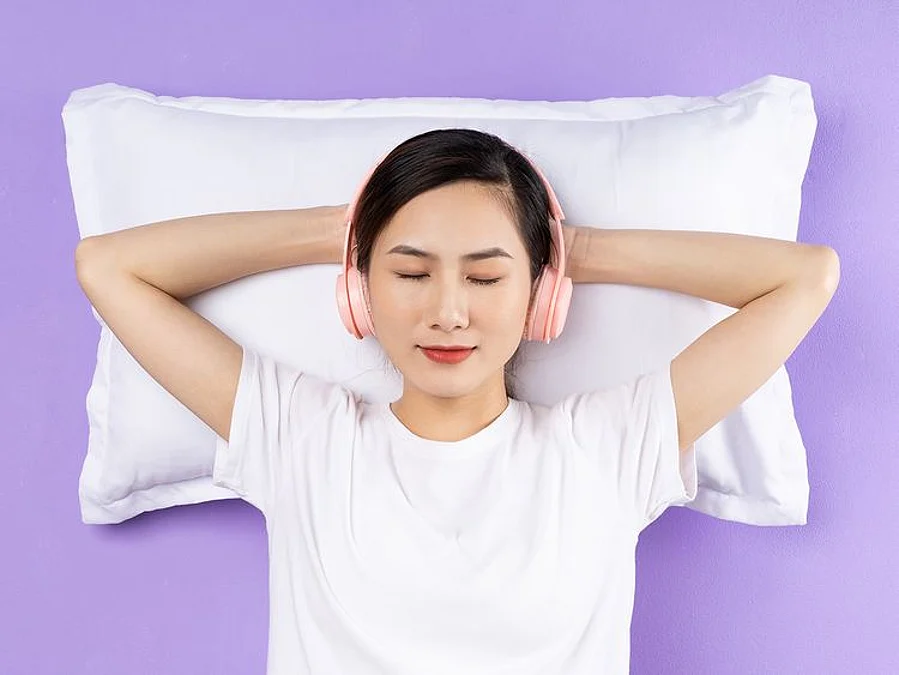It’s a question that keeps hitting snooze: Do we really need a scientific excuse for wanting those extra five minutes in bed? Maybe not. But science does suggest that, at certain points in life, women could genuinely benefit from a little more rest.In fact, according to the US-based Sleep Foundation, studies have revealed differences in how men and women sleep, from the amount of time spent in each sleep stage to the natural timing of their sleep-wake cycles. Moreover, when catching up after sleep deprivation, women tend to spend more time in deep sleep than men, indicating they may be more sensitive to sleep loss.Furthermore, women are also more susceptible to the health consequences of poor sleep, including mood disorders and cardiovascular issues. While not all women need significantly more sleep than men, biological factors, which includes the hormonal fluctuations, that can make sleep disturbances more common and increase the risk of developing sleep disorders..Heart attacks in women: Why symptoms are different, danger signs to watch, and how to protect yourself.Biology and hormonesMen and women are wired differently, both biologically and hormonally, as Dr. Shikha Garg, Specialist Obstetrics & Gynaecology at Aster Royal Clinic, Downtown explains. “On average, women may need 12 to 20 minutes more sleep per night than men.” That might not sound like much, but over time, those extra minutes matter, especially when women are juggling hormonal shifts, multitasking brains, and the unique demands of pregnancy and motherhood.While both genders are recommended to get 7 to 9 hours of sleep every night, women’s needs can run slightly higher because of one major factor: hormonal fluctuations. “These biological differences erupt from hormonal fluctuations which women can experience during their lives, which are puberty, menstruation, pregnancy or menopause,” says Dr. Garg.Women also tend to have an earlier circadian rhythm, which affects the natural sleep-wake cycle. “Biologically, women also tend to have slightly earlier circadian rhythm, which is the body’s natural sleep-wake cycle, due to increased melatonin production, the hormone that regulates sleep and circadian rhythm in humans,” she adds.Why does sleep get interrupted?.Hormonal changes aren’t just abstract biology. They show up in real, painful ways. Women can experience excruciatingly painful cramping, headaches or bloating, which fractures their sleep patterns, as Dr. Garg explains.During pregnancy, sleep gets even more complicated. Some expectant mothers deal with Restless Leg Syndrome (RLS), an irresistible urge to move the legs, especially at night. “Magnesium and vitamin E intake during pregnancy at nighttime helps this condition and may be considered therapeutic,” she adds.And post-delivery is when sleep truly becomes a luxury. Caring for a newborn means waking up at all hours — and combined with the crash in pregnancy hormones, it takes a serious toll. “After delivery, in postpartum phase, taking care of newborn causes an irregular sleep cycle and postpartum drop of pregnancy hormones results in daytime somnolence.”Finally, during the post menopause state, many women experience significant changes in sleep quality. The drop in estrogen and progesterone, hormones that help regulate sleep, it can lead to more frequent awakenings, trouble falling asleep, and lighter sleep overall. Hot flashes and night sweats often disrupt rest, and mood changes or anxiety may further interfere. As a result, insomnia becomes more common, and women may feel less refreshed. .These biological differences erupt from hormonal fluctuations which women can experience during their lives, which are puberty, menstruation, pregnancy or menopauseDr. Shikha Garg, Specialist Obstetrics & Gynaecology at Aster Royal Clinic, Downtown.Sleep hygiene: A must for womenOptimise your sleep environment, which should be dark, cool and quietKeep a regular sleep schedule — even on weekendsAvoid caffeine before bedLimit screen time before sleepingAvoid too many daytime naps These small changes can help reduce sleep disruptions and support better overall health.So, do women really need more sleep?Yes, and not because they’re dramatic, emotional, or just ‘bad sleepers.’ Their bodies go through a hormonal journey every month and across different life stages. That journey takes energy. And to recharge from it, women may truly need a bit more rest. “Understanding the differences between men and women sleep parameters can help in more personalised and precise healthcare guidance by specialists,” says Dr. Garg.So if your body’s asking for rest — listen to it. Sleep isn’t selfish. It’s science.
